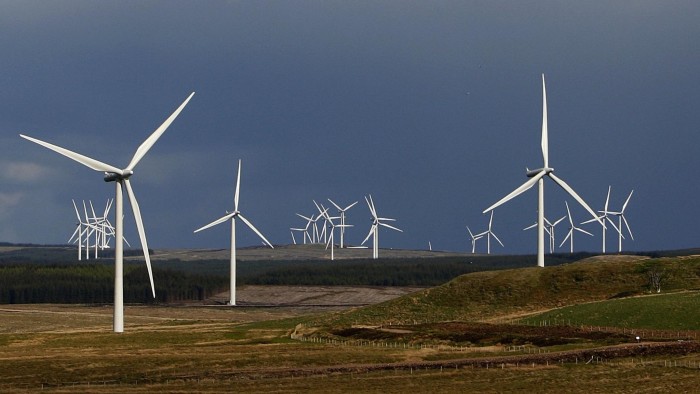Ed Davey warns of energy price threat to independent Scotland

Simply sign up to the Climate change myFT Digest -- delivered directly to your inbox.
Scottish consumers will face higher energy bills if they vote for independence, the UK government has forecast, adding that the rest of Britain does not need Scotland as an electricity supplier.
Average annual Scottish household energy bills could rise by up to £189 if Scotland votes to leave the UK in September’s referendum, according to the forecast, adding fuel to a fiery debate on the implications of independence for consumers and the power sector.
With the pro-union lead narrowing in opinion polls, the energy market has become a battleground for campaigners trying to persuade voters that separation would damage the overall Scottish economy and household budgets.
The Scottish government has said that a looming capacity crunch and carbon reduction commitments mean that the rest of the UK would need to co-operate with an independent Scotland to keep its lights on and its own electricity bills down.
However, Ed Davey, the UK energy secretary, said both claims were demolished by a new UK government analysis, the latest in a series of papers intended to set out the case for the union.
Ofgem, the UK energy regulator, has sparked worries of 1970s-style power blackouts with warnings that the reserve margin – the safety cushion of available generation capacity over peak demand – could drop to between 2 and 5 per cent by next winter. The margin was more than 15 per cent in 2011-12.
But Mr Davey said England and Wales currently relied on Scotland for less than 5 per cent of their energy and could make up any shortfalls.
“There would be no need for the continuing UK to support an independent Scottish state’s energy costs to ensure its own security of supply,” said Mr Davey.
In a scathing critique of UK energy policy, the Scottish government said this week that it expected a shared British electricity market after independence but would also demand much more oversight and stronger safeguards over security of supply.
Nationalists say the rest of the UK would otherwise struggle to meet its commitments to reducing carbon emissions. Scotland has exported more than a quarter of its electricity to England in recent years, and the Scottish government says it has in effect become the UK’s “energy reserve”.
Some power company executives say a unified British market would continue after independence. But Mr Davey dismissed the idea that a system requiring English consumers to subsidise Scottish renewables projects could survive a Yes vote.
Scotland would have to compete as a “foreign country” with other suppliers, with French nuclear power and Irish offshore wind likely to offer a better deal for consumers, he said. “I haven’t done the calculations, but common sense shows that there are low-carbon options the UK could start to tap into which would be cheaper than the likely low-carbon options that an independent Scotland would be offering us.”
The UK paper argues that if Scotland lost unrestricted access to an integrated British energy market, Scottish consumers would face greater costs from network investment, supporting small-scale renewables and subsidies for remote areas.
By 2020 this would add at least £38 at 2012 prices to Scottish average annual household energy bills, and about £110,000 to costs for a medium-sized manufacturer, the analysis says. If the full cost of supporting “large-scale Scottish renewables” were included, the bill increase would rise to £189 for households and £608,000 for a medium-sized manufacturer.
The predictions were immediately dismissed by Scottish nationalists as “scaremongering”.
They will also be contested by some analysts. One group of energy experts recently concluded that the UK’s embrace of expensive new nuclear power plants and Scotland’s abundance of relatively cheap onshore wind meant independence could make it cheaper to meet Edinburgh’s renewables targets.
Alex Salmond, Scotland’s first minister and a former energy economist, says independence would allow a longer-term approach to taking advantage of wind, tidal and wave power.
“It’s a time for Scotland – working with nations and companies from across the planet – to become the intellectual powerhouse of green energy,” Mr Salmond said in a speech in New York this week.
Additional reporting by Guy Chazan in London
Comments